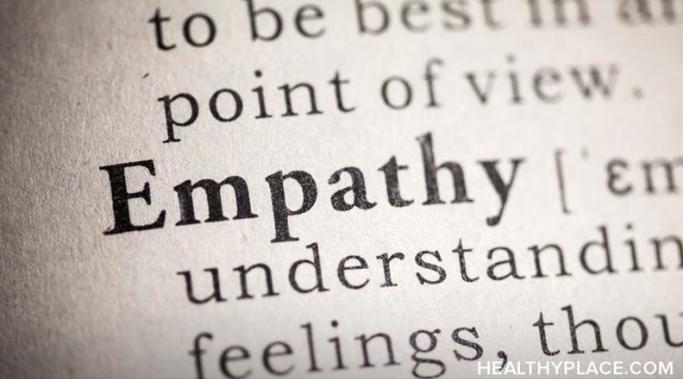One of the most controversial things the latest version of the Diagnostic and Statistical Manual of Mental Disorders (DSM-5) did was remove the bereavement exclusion from the depression diagnosis. Previously, people grieving the loss of a loved one couldn’t be diagnosed with depression for two months after the loss. Now, however, this is no longer the case. Now, even a person grieving the loss of a loved one can be diagnosed with depression.
And some people say this is a further medicalizing of normal emotion. I, however, would argue that there was a good reason for this change and that skilled clinicians can tell the difference between grief and depression. Here are some ways grief and depression differ.
Bipolar Diagnosis
Bipolar disorder is a scary illness, but sometimes even scarier is the idea of treatment. Logically, going to the doctor, getting a diagnosis and getting help doesn’t sound scary, but if you’re the one faced with psychiatrists, personal, probing questions, destroying what you know and treatments that might make you feel worse before you feel better, you might find the concept daunting.
But what do you do if you’re a loved one of a person with bipolar (or another mental illness) who is refusing treatment?
A reader recently contacted me and asked me about psychomotor agitation. Psychomotor agitation is actually a symptom of bipolar hypomania and bipolar mania (and depression) and yet few people know what this means. In fact, according to this study, it is poorly defined and measured even within the medical community. Psychomotor agitation is often translated into “restlessness,” which doesn’t seem overly descriptive to me.
So here’s my take on psychomotor agitation: how it feels and what we know about it.
I first started receiving psychiatric treatment when I was 20 years old. At that time, I was pretty separated and not very attached to my parents. Nevertheless, they and their opinions did have an impact on me. And when I told my mother I had bipolar disorder her reaction was akin to not believing me. She was entirely ignorant about mental illness (and to be fair, I had been too) and mental illness treatment.
She, naturally, wanted me to treat this problem with herbs and other nonsense. And in spite of the fact that I was detached from this woman, her lack of support affected me. At the time, all my energy was being used to fight bipolar disorder, and now I had to fight her too. It was kicking me while I was down. Way, way down. And while she didn’t see it that way, I can attest to the fact that it sure as heck felt that way.
But luckily for me, I was not under her care. Luckily, even though she eventually pressured me into trying out alternative nonsense, I still got the real, medical help I needed. Had I have been younger, this might not have been the case.
And unfortunately, some youth are in this position right now. Some youths feel they have a mental illness and are in the charge of their parents’. And some youths have even told their parents that only to be met with a wall of disbelief or told they’re “overly dramatic.”
I feel for these youths. They’re in a really tough spot. But there are things youths can do even if a parent doesn’t believe their son or daughter has a mental illness and refuses to support their desire to get help.
A get questions from all sorts of family members and friends of people with mental illnesses and, luckily, many of these people want to help. The trouble is people feel intimidated by a diagnosis of mental illness. They don’t even know where to start to help. This is completely normal. A probable lifetime diagnosis is enough to make anyone feel powerless.
But you are not powerless. If you love someone with a mental illness, there are many things you can do to help.
In May, the new Diagnostic and Statistical Manual of Mental Disorders (DSM-5) is being released. This is the book that contains all the diagnostic criteria for mental illnesses.
And there has been lots of public debate around this update. Primarily the feedback on the changes has been negative.
It’s an interesting question, isn’t it? You have a life-altering illness that affects the very way your brain works. Do you actually have to tell people that? Do you have to tell people you have bipolar disorder?
Well, like with everything in life, it depends.
Recently, Karl Shallowhorn of our Debunking Addiction blog wrote a post called, Am I An Alcoholic? This got me to thinking about another question that people ask: Am I mentally ill?
This is a good question. It’s a good question because, by and large, people don’t want to be considered “mentally ill” so they want to know if they meet the definition.
I am not an angry or an aggressive person. This is not to suggest I don’t have my moments, as we all do, but overall, I have far fewer issues with anger than most people I know. There are lots of reasons for this, I’m sure many have to do with my psychology the way I view anger (I view it as pointless and particularly undesirable).
Nevertheless, it seems that people with bipolar disorder do, on the whole, have anger issues. I’m a bit surprised to hear this as anger is not a diagnostic feature of bipolar disorder, but people write in again and again and talk about either having bipolar and being very angry or being with someone who has bipolar and this partner being very angry.
But are these just anecdotal accounts or do people with bipolar disorder have aggressive and angry tendencies?
I’m a mental health writer and I have a mental illness, so, of course, I write about my mental illness. I write about my symptoms and the affect they have on my life. I write about their treatments and their success or lack thereof. I write about what it’s like to have bipolar disorder.
And boy do people feel fine about judging me for it.
Commonly people will say that I don’t have bipolar disorder (being, I’m sure, expert diagnosticians) or say that I’m an idiot (and whatnot) for trying the treatments I have. It’s gotten so bad, in fact, that some things I don’t like to talk about at all. People like to attack me for electroconvulsive therapy and vagus nerve stimulator use specifically. And I don’t like to talk about self-harm, because inevitably people yell about that.
But I learned something earlier this week – not everyone judges people with a mental illness.


![MP900387479[1]](/sites/default/files/styles/blog_listing/public/uploads/2013/05/MP9003874791.jpg?itok=H3noVYZU)



![MP900177900[1]](/sites/default/files/styles/blog_listing/public/uploads/2013/03/MP9001779001.jpg?itok=4-Nio57P)


![MP900289528[1]](/sites/default/files/styles/blog_listing/public/uploads/2012/11/MP9002895281.jpg?itok=g9HZCR-S)